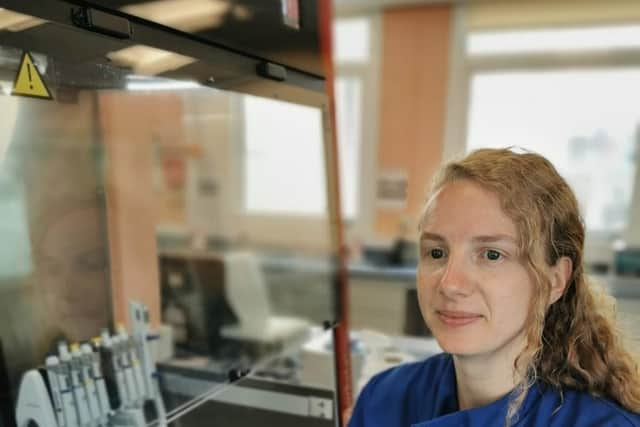University of Portsmouth receives new funding for plastic-eating enzymes
and live on Freeview channel 276
Angie Beckett, specialist research technician in the University’s Centre for Enzyme Innovation, will receive £25,000 to use genome sequencing to search for any new and naturally occurring enzymes that could degrade plastic back into its chemical building blocks.
The university is developing the use of enzymes to break down polyethylene terephthalate which is the most common thermoplastic.
Advertisement
Hide AdAdvertisement
Hide AdAngie said: ‘Although we have discovered enzymes that can break down PET, there is still some improvement needed to make it ready for plastic-recycling. There are also many other types of plastic that we need to figure out how to break down.’


The thermoplastic is used to make single-use drinks bottles and it takes hundreds of years to break down in the natural environment.
She added: ‘Nature often holds the key to these problems, so we intend to take samples from the environment and see if we can find the answers. Using sequencing to look at the DNA of bacteria living in close contact with plastic, we hope to discover new plastic-eating bacteria. I’m very excited to do this research and see what we can find.’
The plastic eating enzyme will break the plastic down which creates the opportunity for a never ending plastic recycling process, which will help improve the environment by reducing pollution and greenhouse gases.
The funding is from COVID-19 Genomics UK (COG-UK) consortium, who launched the scheme for consortium members whose research had been delayed by their research on the SARS-CoV-2 sequencing.
